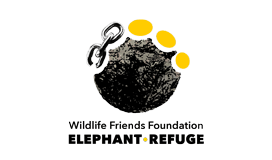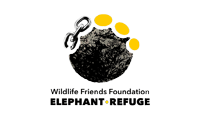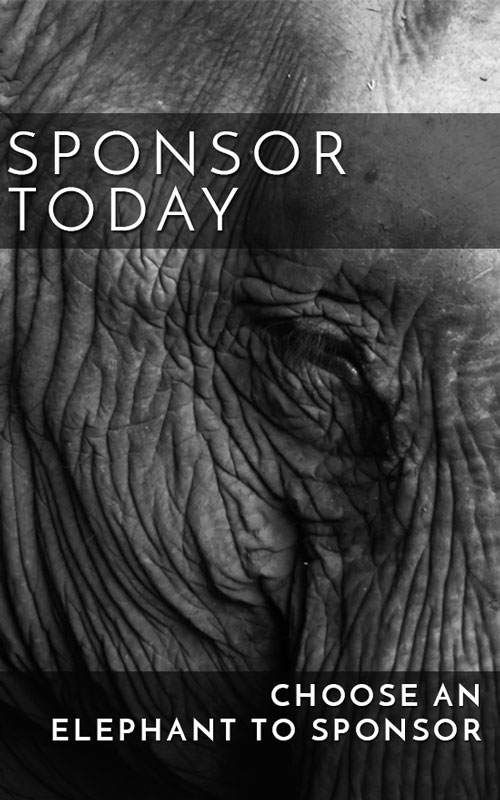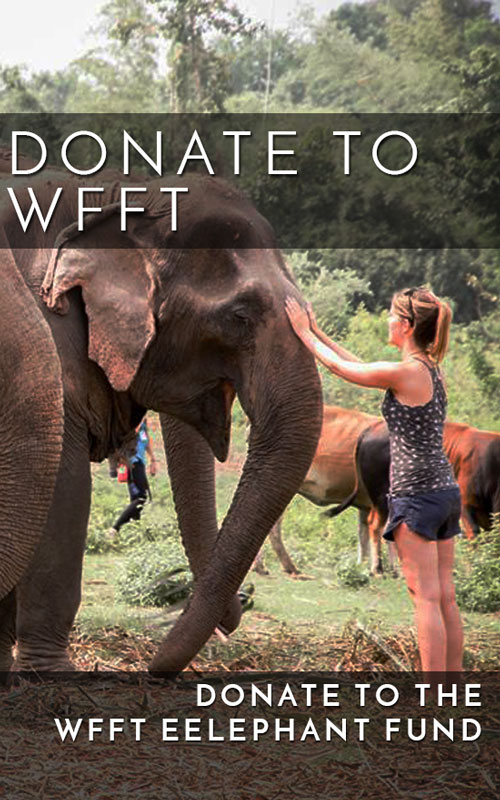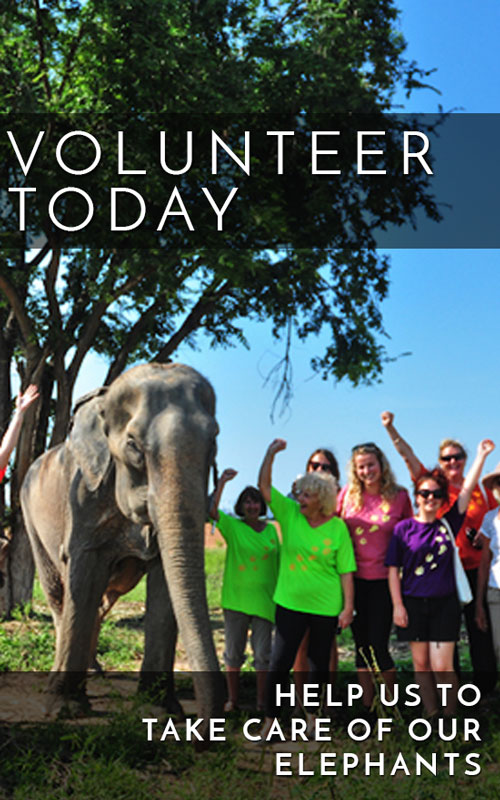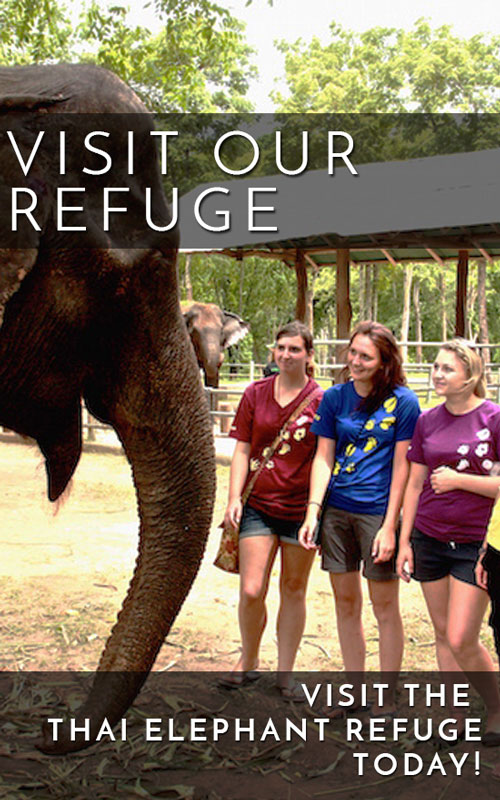Volunteer With Thai Elephant Refuge
![]() A hands-on working experience with rescued elephants. The Elephant Refuge is an elephant sanctuary located about 160 kilometres southwest of Bangkok. If you wish to volunteer ethically with elephants, and wish to know more about them, the problems they face and you want to be part of the solution, this is the place to come and volunteer! Nearby forests give our rescued elephants the chance to roam around in their “original and natural” habitat. We have purchased large pieces of land to make these forests and grasslands their « home » Our elephant enclosures have trees and lakes, measure up to 7 hectares each! We run Asia’s first «chain free» elephant sanctuary! No elephant is ever chained up, day or night!
A hands-on working experience with rescued elephants. The Elephant Refuge is an elephant sanctuary located about 160 kilometres southwest of Bangkok. If you wish to volunteer ethically with elephants, and wish to know more about them, the problems they face and you want to be part of the solution, this is the place to come and volunteer! Nearby forests give our rescued elephants the chance to roam around in their “original and natural” habitat. We have purchased large pieces of land to make these forests and grasslands their « home » Our elephant enclosures have trees and lakes, measure up to 7 hectares each! We run Asia’s first «chain free» elephant sanctuary! No elephant is ever chained up, day or night!
The accommodation is in simple bungalows within the centre. Each bungalow has its own (European style) toilet and shower and are mainly either two or three bedded. There is a large kitchen within the main volunteer house for making breakfast and hot drinks. Lunch and dinner are cooked for you. A positive attitude towards group living and teamwork is essential. Your stay at the centre will be basic and you will be expected to help with housework duties and keeping the volunteer house clean and tidy.
Volunteer With Thai Elephant Refuge
![]() A hands-on working experience with rescued elephants. The Elephant Refuge is an elephant sanctuary located about 160 kilometres southwest of Bangkok. If you wish to volunteer ethically with elephants, and wish to know more about them, the problems they face and you want to be part of the solution, this is the place to come and volunteer! Nearby forests give our rescued elephants the chance to roam around in their “original and natural” habitat. We have purchased large pieces of land to make these forests and grasslands their « home » Our elephant enclosures have trees and lakes, measure up to 7 hectares each! We run Asia’s first «chain free» elephant sanctuary! No elephant is ever chained up, day or night!
A hands-on working experience with rescued elephants. The Elephant Refuge is an elephant sanctuary located about 160 kilometres southwest of Bangkok. If you wish to volunteer ethically with elephants, and wish to know more about them, the problems they face and you want to be part of the solution, this is the place to come and volunteer! Nearby forests give our rescued elephants the chance to roam around in their “original and natural” habitat. We have purchased large pieces of land to make these forests and grasslands their « home » Our elephant enclosures have trees and lakes, measure up to 7 hectares each! We run Asia’s first «chain free» elephant sanctuary! No elephant is ever chained up, day or night!
The accommodation is in simple bungalows within the centre. Each bungalow has its own (European style) toilet and shower and are mainly either two or three bedded. There is a large kitchen within the main volunteer house for making breakfast and hot drinks. Lunch and dinner are cooked for you. A positive attitude towards group living and teamwork is essential. Your stay at the centre will be basic and you will be expected to help with housework duties and keeping the volunteer house clean and tidy.
Financial Contribution
The financial contribution you make to the centre supports the costs of caring for the elephants and for your food and accommodation.
Elephants in Thailand
![]() Thailand is home to both wild and domesticated populations of the Asian elephants. A domestic elephant is one who has been captured in the wild or bred in captivity and tamed to live and work with a mahout (elephant keeper), in tourism or logging industry. Today, Thailand’s wild population of elephants are struggling for survival. The nearby mountain forests are primary forest and in the valleys and lowlands, secondary forest. The wild elephants of Thailand (of which we estimate, there are only around 2200 left) live in open grass fields and dense rainforests spread over the country.
Thailand is home to both wild and domesticated populations of the Asian elephants. A domestic elephant is one who has been captured in the wild or bred in captivity and tamed to live and work with a mahout (elephant keeper), in tourism or logging industry. Today, Thailand’s wild population of elephants are struggling for survival. The nearby mountain forests are primary forest and in the valleys and lowlands, secondary forest. The wild elephants of Thailand (of which we estimate, there are only around 2200 left) live in open grass fields and dense rainforests spread over the country.
Historically, domestic elephants have been used mainly in the logging industry, ironically and unwillingly helping to destroy the very habitat they need to survive. After the ban on logging, most of these elephants have ended up being used for the tourism industry or have had to make a living begging on the streets of big cities. Walking day and night on these dirty and traffic-congested streets is dangerous and unhealthy and very often, these elephants end up being involved in horrific traffic accidents. Regrettably, in Thailand, there are no laws to prevent this abuse and mistreatment, therefore there is an urgent need to help these animals. This is where our volunteers come in.
When volunteering with elephants, you will be taught everything you need to know about the care of these magnificent animals. You will work hands-on with the elephants, washing them, feeding them, going out to collect food for them, and cleaning their enclosures.
Short and long-term volunteering stays are possible; however, volunteers are required to make a minimum commitment of one week. As a general rule, stays less than a week is not permitted.
Elephants in Thailand
![]() Thailand is home to both wild and domesticated populations of the Asian elephants. A domestic elephant is one who has been captured in the wild or bred in captivity and tamed to live and work with a mahout (elephant keeper), in tourism or logging industry. Today, Thailand’s wild population of elephants are struggling for survival. The nearby mountain forests are primary forest and in the valleys and lowlands, secondary forest. The wild elephants of Thailand (of which we estimate, there are only around 2200 left) live in open grass fields and dense rainforests spread over the country.
Thailand is home to both wild and domesticated populations of the Asian elephants. A domestic elephant is one who has been captured in the wild or bred in captivity and tamed to live and work with a mahout (elephant keeper), in tourism or logging industry. Today, Thailand’s wild population of elephants are struggling for survival. The nearby mountain forests are primary forest and in the valleys and lowlands, secondary forest. The wild elephants of Thailand (of which we estimate, there are only around 2200 left) live in open grass fields and dense rainforests spread over the country.
Historically, domestic elephants have been used mainly in the logging industry, ironically and unwillingly helping to destroy the very habitat they need to survive. After the ban on logging, most of these elephants have ended up being used for the tourism industry or have had to make a living begging on the streets of big cities. Walking day and night on these dirty and traffic-congested streets is dangerous and unhealthy and very often, these elephants end up being involved in horrific traffic accidents. Regrettably, in Thailand, there are no laws to prevent this abuse and mistreatment, therefore there is an urgent need to help these animals. This is where our volunteers come in.
When volunteering with elephants, you will be taught everything you need to know about the care of these magnificent animals. You will work hands-on with the elephants, washing them, feeding them, going out to collect food for them, and cleaning their enclosures.
Short and long-term volunteering stays are possible; however, volunteers are required to make a minimum commitment of one week. As a general rule, stays less than a week is not permitted.
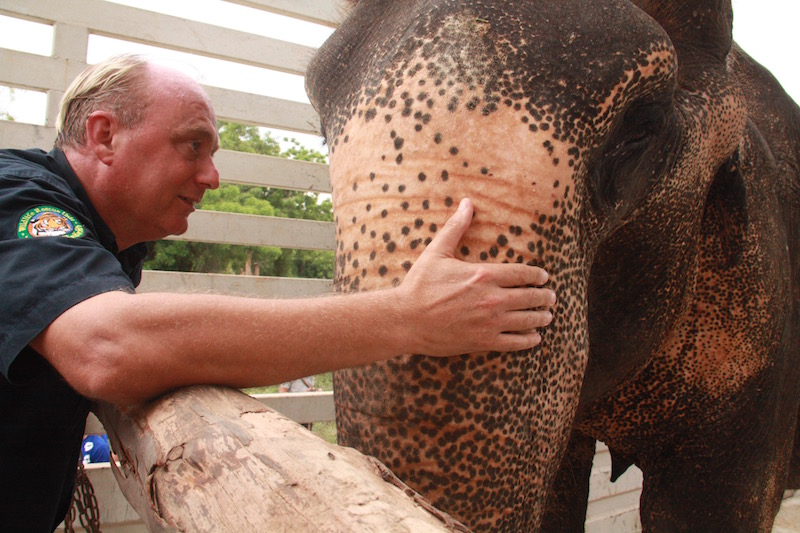
In order to become an elephant volunteer with us you need to fulfil the following criteria:
The longer you stay, the cheaper it gets as we value a longer commitment!
Thank You
![]()
Once again, thank you for your interest in our organization and projects.
You can ask for additional information about our projects, including conditions for volunteering with animals and costs. If you are interested in a volunteer position with our elephants at the Wildlife Friends Foundation of Thailand, please send an e-mail or letter of motivation via email to volunteer@wfft.org explaining your interest in the project, a brief paragraph about yourself and your proposed length of stay. Better still, you can download an application form here…
Can’t choose which project to volunteer with? You can do both! We offer combination experience which allows you to volunteer with both Wildlife Rescue Centre (WRC) and Elephant Refuge and Education Centre (EREC) projects.
For these combinations please follow this link.
Thank You
![]()
Once again, thank you for your interest in our organization and projects.
You can ask for additional information about our projects, including conditions for volunteering with animals and costs. If you are interested in a volunteer position with our elephants at the Wildlife Friends Foundation of Thailand, please send an e-mail or letter of motivation via email to volunteer@wfft.org explaining your interest in the project, a brief paragraph about yourself and your proposed length of stay. Better still, you can download an application form here…
Can’t choose which project to volunteer with? You can do both! We offer combination experience which allows you to volunteer with both Wildlife Rescue Centre (WRC) and Elephant Refuge and Education Centre (EREC) projects.
For these combinations please follow this link.
